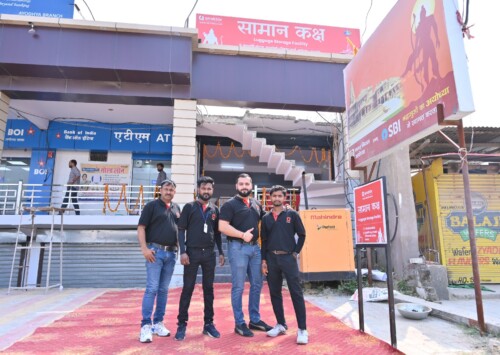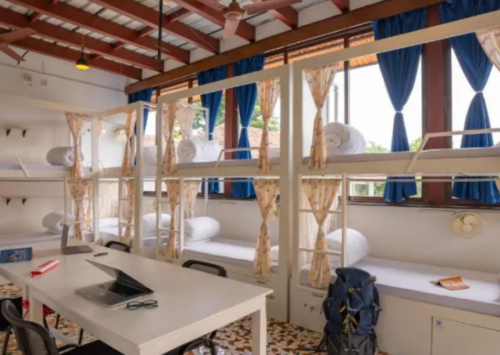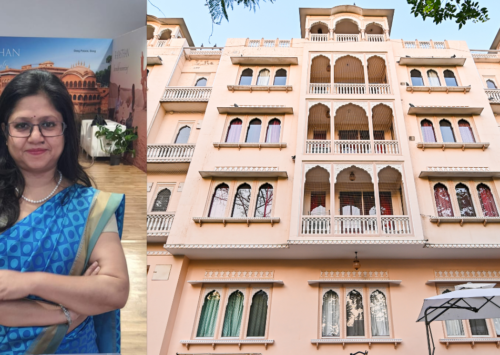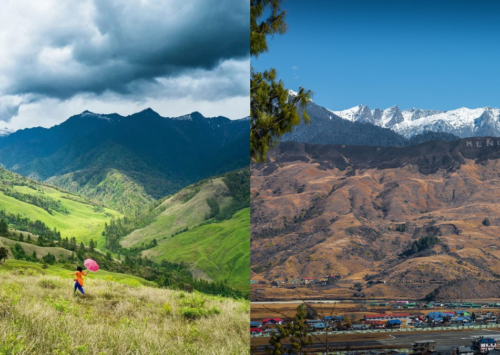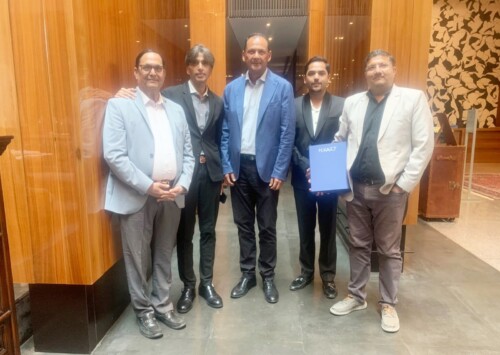Amidst high expectations BJP government in Delhi faces early test on election promises
Registers mixed progress on key pledges in four months

BJP's manifesto promised sweeping reforms across healthcare, housing, water supply, employment and pollution control, with a special focus on the Yamuna riverfront
After it stormed back to power in the national capital, the new Bharatiya Janata Party government faces high expectations due to its electoral promises, as voters say the government has registered a mixed progress on key promises.

BJP's manifesto promised sweeping reforms across healthcare, housing, water supply, employment and pollution control, with a special focus on the Yamuna riverfront
The 2025 Delhi Legislative Assembly elections marked a watershed moment, with the Bharatiya Janata Party (BJP) reclaiming power after 27 years, securing 48 of 70 seats, while the incumbent Aam Aadmi Party (AAP) suffered a dramatic reversal, with several prominent leaders including former Chief Minister Arvind Kejriwal and ex-Deputy Chief Minister Manish Sisodia losing their seats.
BJP’s campaign was anchored in its manifesto, the Viksit Delhi Sankalp Patra 2025, which promised sweeping reforms across healthcare, housing, water supply, employment and pollution control, with a special focus on the Yamuna riverfront.
A central pillar of the BJP’s 2025 manifesto was the promise to implement the Ayushman Bharat scheme in Delhi, aiming to provide affordable and quality healthcare for every citizen, with the pledge to enact this in the first Cabinet meeting if BJP came to power. And accordingly, in the first cabinet meeting held on February 20, chaired by Delhi Chief Minister Rekha Gupta, the implementation of the Ayushman Bharat scheme was approved with a top-up of INR 500,000 for poor families, fulfilling this promise. In 2020, Delhi’s healthcare was largely managed by AAP’s Mohalla Clinics or neighbourhood healthcare centres, and the Delhi government’s health insurance schemes, which covered approximately 4 million beneficiaries. BJP’s 2025 promise sought to expand coverage to all Delhi residents, estimated at over 20 million.
As of June, four months after the election, official enrollment figures under Ayushman Bharat for Delhi remain unpublished and no concrete data has been released to demonstrate the scale of expanded coverage or the actual number of new beneficiaries enrolled since the government took office. The intent to universalise healthcare coverage is a significant policy shift, but measurable progress remains unverified.
For some Delhiites, these policy shifts are more than just numbers. “Since the new government, I have been able to get my Ayushman Bharat card. My mother needed an operation, and we got it done at a private hospital without paying anything. The INR 2,500 help every month has also made it easier to buy medicine and pay for my daughter’s school books. I feel the government is finally thinking about people like us, though sometimes the paperwork is too much and the water in our lane still comes only in the morning,” Laxmi Devi, a house- help who lives in the Race Course area in New Delhi, tells Media India Group.
On the housing front, the BJP pledged to provide housing to 350,000 poor families, a 133 pc increase over the 2020 backlog of 150,000 families on the Delhi Urban Shelter Improvement Board (DUSIB) waiting list. However, there is no official confirmation of new housing allotments, construction starts, or progress in addressing the backlog since February. The promise remains largely on paper, with no public reports detailing the number of families housed or the status of new projects initiated under the current government.
Water supply has been another flashpoint. The BJP’s 2025 manifesto committed to providing piped water to every household under the Jal Jeevan Mission. In 2020, about 90 pc of households already had access to piped water, but complaints about water quality, irregular supply and contamination persisted. Four months into the new government, there are no official updates confirming a significant increase in coverage or measurable improvements in water quality. The ambitious goal of universal coverage and improved service remains aspirational at this stage.
Employment generation was a major theme in the BJP’s 2025 manifesto, with promises to create 50,000 government jobs and 2 million self-employment opportunities. In 2020, Delhi’s unemployment rate hovered around 10 pc. BJP’s target to create 2 million self-employment opportunities would, if fully realised, represent a substantial decrease in unemployment, but official data released since the election do not report the number of new jobs created or self-employment schemes launched.
Pollution and the Yamuna riverfront have been perennial challenges. BJP’s 2025 manifesto pledged to clean the Yamuna in three years and develop its riverfront akin to the Sabarmati riverfront in Ahmedabad. In 2020, the Yamuna’s water quality was severely polluted, with biochemical oxygen demand (BOD) levels far exceeding permissible limits. As of mid-2025, there has been no official update on measurable improvements in water quality or riverfront development.
Raju Kumar, a vegetable vendor living near the Yamuna river, paints a more critical picture.
“They said they would clean the Yamuna and give us better houses. But the river still smells and during the rains, our jhuggi gets flooded. Yes, we got LPG subsidy and sometimes free meals at the Atal Canteen, but my children still have to fetch water from far away. The promises are big, but for people like us, life is still a daily struggle,” he tells Media India Group.
The manifesto also promised to make Delhi a 100 pc e-bus city by introducing 13,000 electric buses.
In 2020, Delhi had around 6,000 buses, of which only a small fraction were electric. However, in 2024, a fleet of over 2,000 new electric buses was inducted, with plans to bring in more, which remained unfulfilled due to political slanging between AAP and BJP. Now, BJP’s plan would represent a 117 pc increase in the total bus fleet and a complete transition to electric vehicles. In April, about 500 smaller capacity electric buses were inducted in late March and plans were announced for 500 more regular-sized electric buses to be on the roads within this fiscal year. Of these, 105 buses were added to the fleet on June 27.
BJP’s 2025 manifesto also addressed the plight of gig workers, promising a welfare board with health insurance up to 1 million and accident cover up to 500,000. In 2020, there was no formal welfare scheme for gig workers in Delhi, so this represents a significant policy innovation. However, as of June, there is no official announcement of the board’s formation, nor any details on enrollment or coverage for gig workers. The manifesto further promised to regularise 1,700 unauthorised colonies and give full ownership rights to residents, a move that could potentially benefit millions, though the actual number of colonies regularised since the election has not been disclosed, and no public documentation confirms progress on this front.
Four months may yet be early for a new government to implement all its promises, but voters are not necessarily patient or understanding. As political parties raise voters’ expectations to unrealistic levels during election campaigns, the onus of delivering on every single promise the very next day is also on them.


